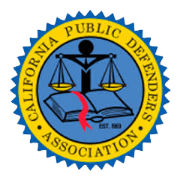Money Laundering Defense Attorney Los Angeles
Money laundering can be prosecuted under both federal and California law. In both instances, money laundering takes money earned from an illegal enterprise and converts it into legitimate income through various steps within a financial institution. It is considered a white-collar crime, although it is often associated with illicit drug sales, prostitution, gambling, and human trafficking.
Money laundering is big business. It is estimated that between 2-5% of global gross domestic product—GDP—is caught up in dirty money. That translates to $800 million to $2 trillion in assets. If you face an investigation or prosecution for money laundering, seek legal counsel as soon as possible.
Retaining skilled and experienced counsel early in a money laundering investigation is necessary to preserve your options and to protect your rights as an individual or business. As soon as you learn that you might be the target of such an investigation, you should contact RP Criminal Defense Law to schedule a consultation to permit our Los Angeles-based money laundering defense attorneys to assess the strength of the government’s case and to guide you through the investigation and ensuing criminal prosecution. We are conveniently located in Encino and Beverly Hills. RP Criminal Defense Law provides aggressive individualized representation backed by experience and a thorough understanding of all aspects of money laundering prosecutions.
What Is Money Laundering?
As stated, money laundering can be prosecuted under federal and California law. Money laundering is accomplished in three steps:
- Placement: the illegal assets are placed into a legitimate financial institution
- Layering: the illegal assets are mixed with legitimate funds
- Integration: the washed illegal assets are reintroduced into the economy
The United States Money Laundering Crime Act of 1986 modernized federal prosecutions to conform to modern electronic banking procedures. It is illegal to knowingly engage in a financial transaction where underlying criminal activities are promoted or in order to hide the illegal source of the funds.
To convict on a federal charge, the government must prove, beyond a reasonable doubt that:
- The defendant knew the money or property involved was the proceeds of illegal activity;
- The defendant participated in the financial transaction; and
- The defendant understood that the transaction was to conceal the nature and source of the illegal funds.
California authorities can also prosecute for money laundering under California Penal Code sec 186.10. To convict a defendant on a California money laundering charge, the government must prove, beyond a reasonable doubt that:
- The defendant conducted or attempted to conduct a financial transaction, or more than one transaction within 7 days, through a financial institution, of more than $5000, or that the transaction or transactions of a total exceeding $25,000 within a 30-day period through one or more banks or other financial institutions.
- The defendant had the intent to promote, manage, or facilitate criminal activity, or be conducted with the knowledge that the money was from criminal activities.
- The financial transactions constituting money laundering include deposits, loans, withdrawals, bank transfers, and exchange of currency.
Money Laundering Penalties
Money laundering can be prosecuted as a misdemeanor or as a felony. Factors influencing the decision include: amounts of money converted from illicit to legitimate; the nature of the underlying criminal activity; where the defendant was positioned in the criminal enterprise; and the defendant’s own criminal record.
Misdemeanor penalties range from sentences of up to 1 year in county jail, along with a possible fine of up to $1,000. As a felony, sentences can range from 16 months to 2 years in jail, along with a possible fine of up to $250,000 or twice the amount of money that was laundered, whichever is greater. If narcotics are involved, under California law, sentences are 2-4 years in state prison, along with the staggering fines listed just above.
Crimes Commonly Associated with Money Laundering
Money laundering is commonly associated with all forms of the illegal drug trade—sale of marijuana, amphetamines, opioids, heroin, cocaine, and prescription drugs. The underlying criminal activity can be anything: prostitution, human trafficking, gambling, bribery and kickbacks, identity and credit card theft, or embezzlement. Any criminal activity that produces profits might result in money laundering.
Legal Defense for Money Laundering Charges
A skilled and experienced money laundering defense attorney will examine the evidence gathered through the government’s investigation, especially the methods for gathering that evidence. If searches and seizures, and even arrest, violate constitutional and statutory requirements, sometimes charges can be dismissed or reduced as a consequence of those improper techniques.
All defenses are dependent upon the unique facts of your case. Some common defenses might question that you lacked the specific intent required to convict, you didn’t know the funds were illegally gotten, or the amounts of money did not meet the statutory limits under California law: $25,000.
Money Laundering Lawyer Serving Los Angeles & San Bernadino
Facing a charge of money laundering can be intimidating. You deserve a fair assessment of the strength of the prosecution’s case to determine how best to proceed. You deserve representation that will bring skill and expertise to examining the police reports and investigatory files. An independent investigation and financial auditing to fully understand the weight of evidence and the savvy one gets from years of experience representing criminal defendants in Los Angeles and San Bernadino courts. Our offices are conveniently located in Encino and Beverly Hills. Only seasoned criminal defense attorneys can realistically evaluate the evidence, the credibility of witnesses, and the preference of the trial judge. Contact us today for your initial consultation. A $250 fee will be charged and credited to your account if RP Criminal Defense Law is retained.
California Money Laundry FAQ
Q: What is money laundering?
A: Money laundering is the process of taking money obtained through illegal means, such as drug trafficking or fraud, and making it appear as though it was obtained through legal means. This is typically done by funneling illegal funds through a complex web of transactions and accounts.
Q: Is money laundering illegal in California?
A: Yes, money laundering is a crime in California. The state has strict laws governing the handling of funds obtained through illegal activities.
Q: What are the penalties for money laundering in California?
A: The penalties for money laundering in California can vary depending on the specific circumstances of the case. However, they typically include fines, jail time, and forfeiture of any assets obtained through the illegal activity.
Q: Who investigates money laundering in California?
A: Money laundering is investigated by a number of different agencies in California, including the California Department of Justice, the Federal Bureau of Investigation (FBI), and the Internal Revenue Service (IRS).
Q: What is the statute of limitations for money laundering in California?
A: The statute of limitations for money laundering in California is typically five years from the date of the offense. However, this can vary depending on the specific circumstances of the case.
Q: Can someone be charged with both money laundering and the underlying crime in California?
A: Yes, it is possible for someone to be charged with both money laundering and the underlying crime that generated the illegal funds. For example, someone who is charged with drug trafficking may also be charged with money laundering if they are found to have laundered the proceeds of their drug sales.
Q: How can I report suspected money laundering in California?
A: If you suspect that someone is engaged in money laundering in California, you can report it to the California Department of Justice or the FBI. You can also report it to your local law enforcement agency.





